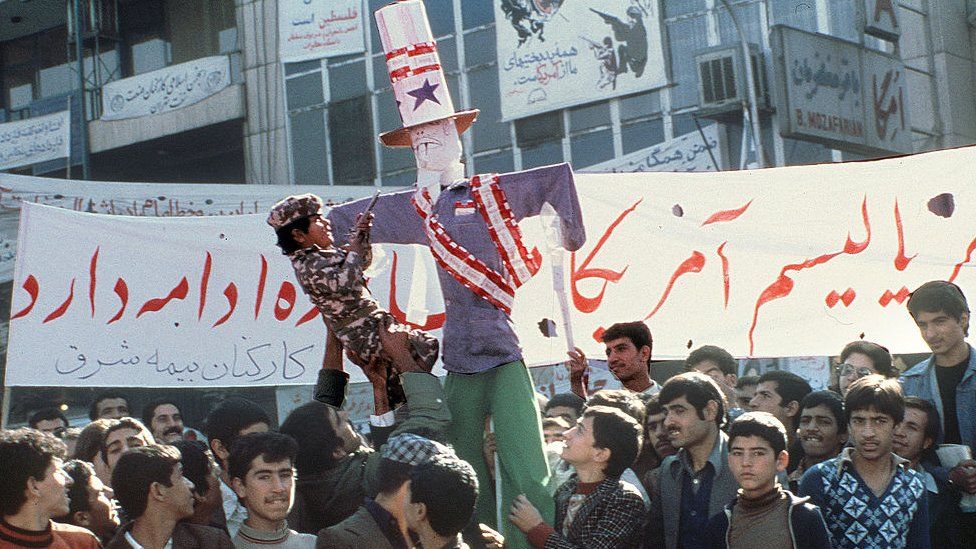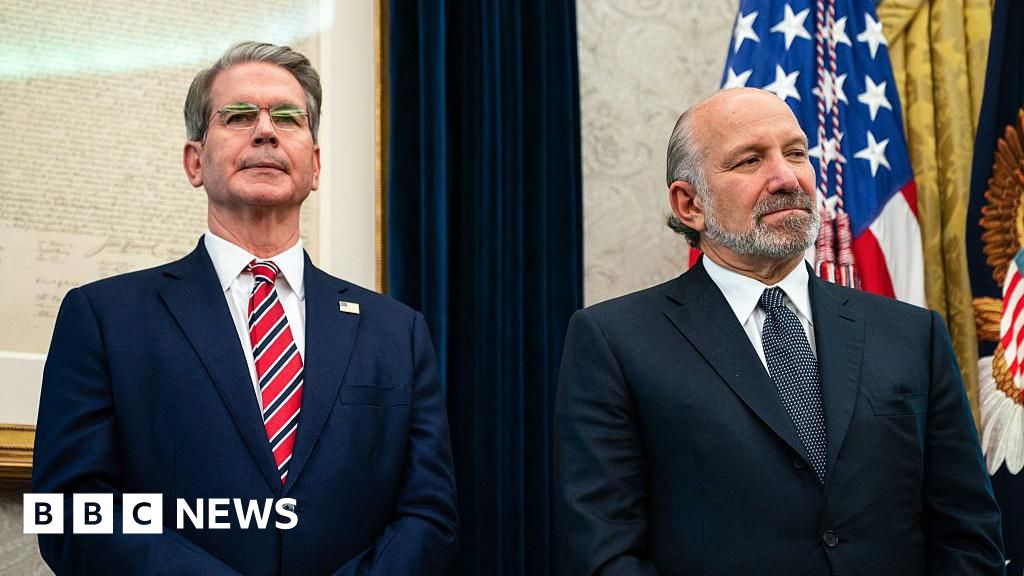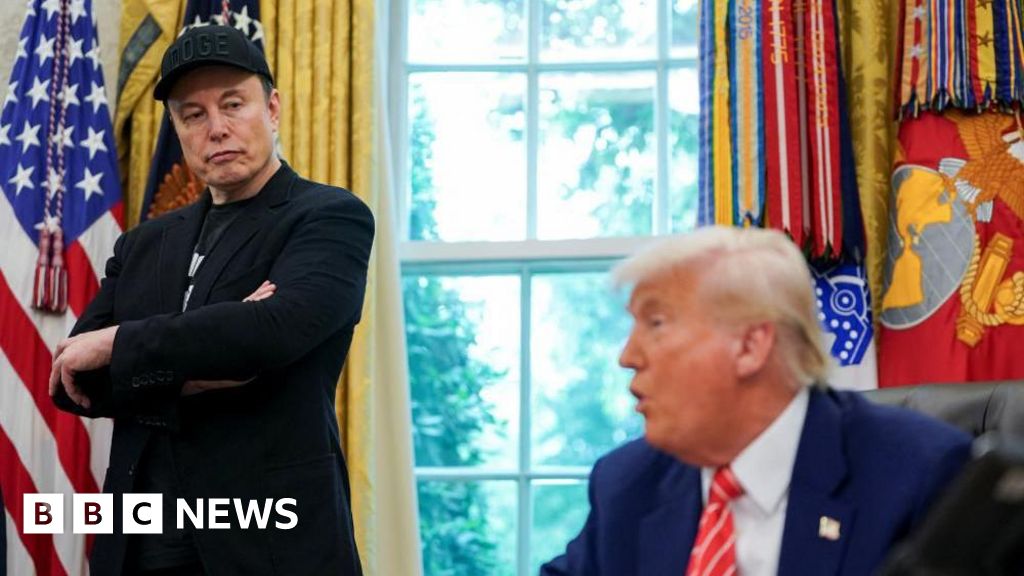ARTICLE AD BOX
 Image source, Getty Images
Image source, Getty Images
Supporters of the Iranian revolution stormed the US embassy in Tehran in November 1979
For the first time, the CIA has revealed the identity of a second officer who played a key role in a 1980 rescue mission in Iran that later inspired the Oscar-winning film Argo.
Also known as the "Canadian caper", the risky and complex operation saw the CIA smuggle six US diplomats out of Iran disguised as a film crew.
With Canada's help, two CIA officers and the six diplomats boarded a flight to Zurich, slipping past the watchful eyes of Iran's revolutionary-era security services.
To do so, the group posed as filmmakers on a trip to scout for locations in which to film a science fiction film, Argo.
Until this week, only one of the officers - disguise and forgery specialist Tony Mendez - had been publicly identified.
Now, the CIA has named the second officer as Ed Johnson, an expert in covert extractions.
Among those who knew him at the CIA was Bob Mendez's wife Jonna, herself a 27-year veteran who rose to become the spy agency's "Chief of Disguise".
Speaking to the BBC, Mrs Mendez described Mr Johnson as a "remarkably skilled linguist" who was also an expert in creating false documents.
"He seemed to be perfectly suited to the work he was doing," she said.
Image source, Getty Images
Image caption,For years, Tony Mendez was the only CIA officer involved in the 'Argo' mission to be publicly identified
On a 14 September episode of its official "Langley Files" podcast, the agency revealed previously unheard excerpts of a once-classified oral history Mr Johnson had provided to CIA historians.
In the oral history, Mr Johnson said that the "biggest thing" in the operation was convincing the diplomats that they could successfully convince the Iranians they were members of a film crew.
Doing so required changes in appearance, complete with TV props such as camera viewfinders, and intricate backstories and false personas. They were given only one day to get ready.
"They [the diplomats] were people who were not trained to lie to authorities," he said. "They weren't trained to be clandestine, elusive."
While Mr Johnson had ample experience in the Middle East and was fluent in Arabic, he did not speak Farsi, Iran's primary tongue.
He did, however, speak German - a language that came in handy when him and Mr Johnson unwittingly found themselves at the Swedish embassy, just across the street from the then-occupied US embassy where 52 US citizens had been taken hostage in 1979.
There, a German-speaking Iranian guard helped the two officers by flagging down a taxi and sending them off to the Canadian embassy, where the six diplomats had taken refuge.
"I have to thank the Iranians for being the beacon who got us to the right place," Mr Johnson said in the CIA interview.
In the 2012 film, the team's eventual departure from Iran is depicted as a nerve-wracking close call that ended with Iranian troops attempting to chase down the plane.
The reality, Mr Johnson recalled, was far less eventful, with the diplomats relaxed and "confident" as they went through the final stages of the mission.
"They were happy-go-lucky," he said. "Even at the airport, it continued."
Image source, International Spy Museum
Image caption,The 'Canadian caper' has one of the CIA's best-known successes
In the years and decades that followed the operation, Mr Mendez wrote several books, served on the board of the Washington DC-based International Spy Museum and was played by Ben Affleck in the 2012 film. He died in January 2019.
Mr Johnson, however, preferred to live quietly in the shadows and until recently preferred his identity and role in the operation remain secret. Because of health issues, he was not able to give the CIA's podcast another interview.
Dr Andrew Hammond, the historian and curator of the International Spy Museum, told the BBC that publicising his name 42 years after the operations sheds a rare public spotlight on a successful CIA mission.
The "caper", he added, came at a turbulent time for the CIA, just years after hundreds of intelligence officers and officials were fired as part of an unpopular downsizing from then CIA boss Stansfield Turner.
The US government had also been struggling to find ways to secure the release of dozens of of Americans taken hostage when the US embassy was seized in September 1979. The hostages would ultimately spend 444 days in captivity before being released in January 1981.
"It's an incredible story, and you couldn't make this stuff up, Mr Hammond said.
"Any intelligence agency would be proud of what they've done," he added. "It was bold, ambitious and had a lot of moving parts, and they managed to pull it off."
Mick Mulroy, a former CIA paramilitary officer and former deputy assistant secretary of defence for the Middle East, told the BBC that by being publicly revealed, Mr Johnson could serve as a lesson for current CIA personnel, as well as future US spies.
"Many, if not most, of the CIA's successful operations go publicly unrecognised. That is understood and accepted by those in its service," he said.
"But it is really good to see the heroes who carried out those operations get the recognition they deserve."

 1 year ago
33
1 year ago
33








 English (US) ·
English (US) ·